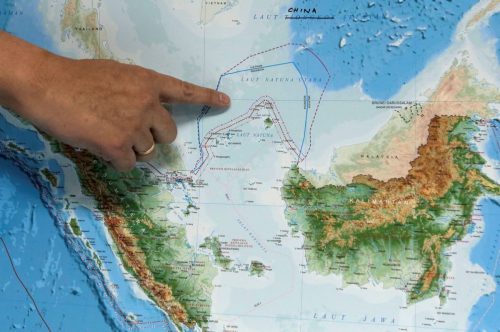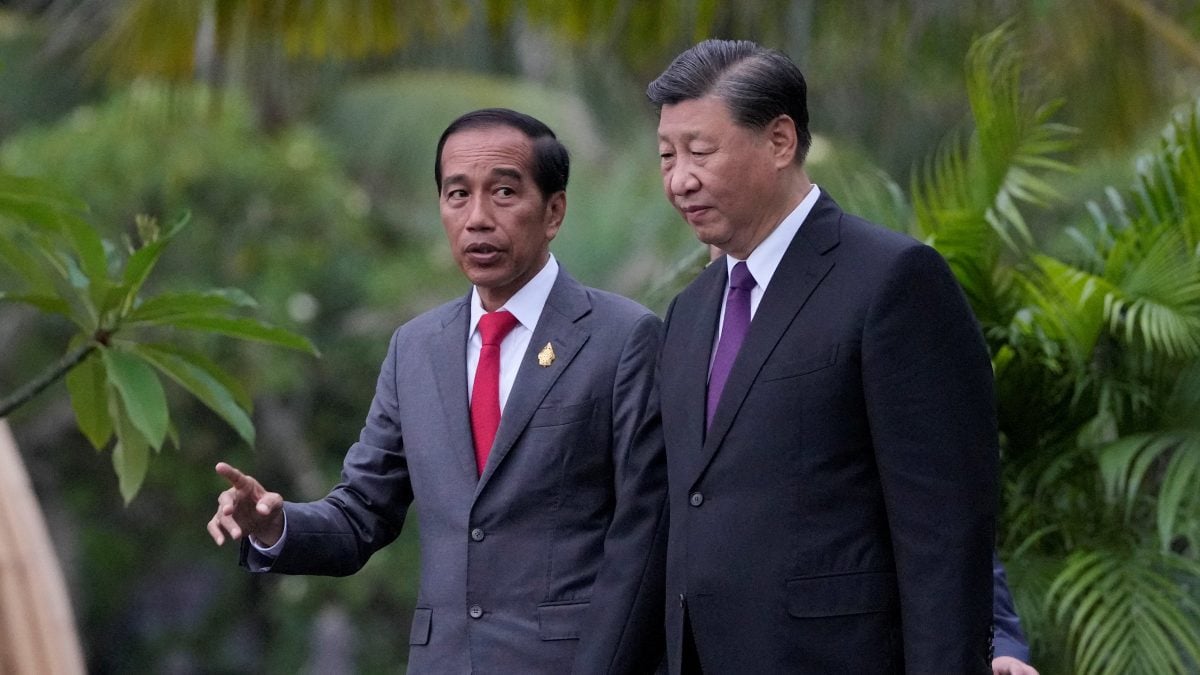The oil and gas sector in Indonesia is preparing for a recovery in the coming years, amid government plans to launch new offshore blocks, but some of them may raise the sensitivity of China, with which it disputes over the South China Sea.
The Indonesian Ministry of Energy is considering offering 10 offshore blocks for oil and gas exploration during 2023, as part of an expansion plan to boost energy production in the country, according to Reuters.
Some of the planned offshore blocks are located in the South China Sea, whose sovereignty is disputed with China, the world’s most populous country and a geographical neighbor to Indonesia, according to the specialized energy platform.
The oil and gas sector in Indonesia awarded 13 fields during the past year 2022 to 6 competing companies in the government auction held previously.
million barrels by 2030
The government plans to increase crude oil production by one million barrels per day by 2030. It also aspires to increase natural gas production by the equivalent of 12 billion cubic feet per day. These plans require investments of no less than $187 billion.
Indonesia failed to achieve a major breakthrough in oil and gas production over the past year; Due to delays in some projects, and the closure of some unexpectedly.
The average production of oil and gas in Indonesia during the year 2022 was approximately 612.3 thousand barrels of oil per day, and 5.3 billion cubic feet of gas per day.
This year, Indonesia intends to put up some gas-rich squares in the vicinity of the huge offshore Tuna field, located in the disputed South China Sea with China.
Subtraction in May and no comment from China
The Indonesian Ministry of Energy hopes to launch bidding for the aforementioned 10 offshore blocks next May, and China has not issued a comment on these plans so far, according to the specialized energy platform.
The ministry also hopes to resume the stalled mega gas projects such as the Deep Water Development Project (IDD) and the Masala Gas Project as soon as possible.
The ministry is currently testing the potential benefits of the tuna field blocks in the South China Sea, before offering them to competition, according to ministry official Tutoka Ariadji.
Last year, the Indonesian government approved a plan to develop the Tuna gas field in the South China Sea, with investments amounting to $3 billion.
The government plans to increase oil and gas investments in Indonesia this year to $15.5 billion, compared to about $12.3 billion in 2022.
Tuna field production begins 2026
The Tuna field is located in the South China Sea in an area shared by Indonesia and Vietnam, and China has been arguing that Indonesia has no right to the disputed South Sea areas for decades.
State corporation SKK Megas expects the offshore Tuna field to begin production by 2026, with peak production in 2027 at 115 million cubic feet per day.
The Indonesian Ministry of Energy plans to export the gas extracted from the Tuna field to neighboring Vietnam starting in 2027, according to the specialized energy platform.
Chevron and Shell withdrawal?
US oil company Chevron is close to reaching a deal with an investor to transfer its stake in the IDD Deepwater Development project, according to SKK Megas, Indonesia’s oil and gas regulator.
Neither Chevron nor the Indonesian Ministry of Energy disclosed the details, terms, or initial value of this deal during the past week, according to the specialized energy platform.
On the other hand, the Indonesian oil and gas company Pertamina is still negotiating with the Anglo-Dutch Shell Company to acquire its stake in the Masella offshore gas project.
Shell announced its intention to withdraw from the project some time ago, and the current negotiations revolve around its 35% stake in the project, while the Japanese company INPEX Corp. acquires 65% of it.
The Japanese company is demanding that the carbon capture and storage plan from the project be settled with the partners, before finalizing an agreement to sell Shell’s stake, according to Natural Gas World.
Indonesia plans to cut carbon emissions by 29% by 2030, hoping to achieve carbon neutrality by 2060, the same year as China’s target.
Beijing claims sovereignty with old maps

China disputes with Indonesia, Malaysia, Vietnam and the Philippines over the rights of sovereignty over the South China Sea, and whenever a country or company attempts to explore, it finds obstacles from the Coast Guard and Chinese maritime surveillance ships.
Beijing claims sovereignty over the South China Sea, based on old maps from previous times stating that, while ignoring an international court ruling issued in 2006, denying these monopoly claims, and confirming the eligibility of other riparian countries.
Indonesia discovered an offshore tuna field in the South China Sea in 2014, at a depth of 389 feet, amid Chinese protests claiming sovereignty.
China lodged an official protest with Indonesia in 2021, demanding a cessation of oil and gas exploration in the Tuna block, which it describes as “Chinese territory”, while Indonesia describes it as the opposite.
Indonesia has rejected China’s claims for years, and asserts its right to sovereignty over part of the South China Sea, under the United Nations Convention on the Law of the Sea.
related topics..
Also read..

Leave a Reply